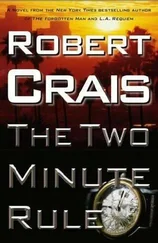“I know. And I know it’s risky, but I want you where you can do the most good. Ashmead’s letting his personal feelings intrude. I can’t do that. I’ve got a mission to run.”
Just then the lift chimed and its doors slid back to reveal Slick, his respirator dangling from one side of his motorcycle helmet: “A mission? No shit, Casper? Going to reactivate the ‘Directorate for Science and Technology’s’ time travel project, are we? Roll the tape back and let us take those rag-heads out on the Riyadh runway like we wanted, like we could have done?” Slick’s finger was on the elevator’s “Emergency Stop” button and it was buzzing angrily.
“Slick, I don’t know what you’re talking about, and if I did, this is no place to discuss it.” Beside Beck, Yael busied herself hunting for car keys in her purse. Task Force 159’s time travel project had been an operational bust, just a flyer taken by a bunch of physics buffs with enough clout to convince a fondly permissive group of government agencies that their combined IQs were reason enough to fund their interagency project.
Slick’s sarcasm twisted his pleasant grin as he continued: “You were in Task Force 159, seconded to CIA for that project, so tell me that’s what this is really about, Casper. Otherwise,” Slick let the button go and stepped over the lift’s threshold, blocking their entry so that the doors closed, “you and I have to get one thing straight—”
“I can’t tell you that—it’s not true. 159 was bullshit; by God I wish it wasn’t, Slick, and I wish you’d stop this—”
“Bullshit. Too bad. But that figures. You can bullshit the rest of ’em all you want, but it’s clear to me that this whole half-assed operation of yours is just to ease your conscience, ’cause you can’t live with the way you fucked up. Which is about one hundred per cent. And now, since we understand each other, you go ahead and piss into the wind all you want. I haven’t got anything better to do, thanks to you, than watch from the upwind side.” Punching the “Door Open” button, Slick stepped out of their path.
When the lift had closed and Beck was alone with Saadia, she tossed her long auburn mane back from her breasts and said: “Don’t mind Slick; he’s the best there is when there’s something going down or if you’re under his command. It’s just that he’s not used to orders from anyone but Rafic.”
“You mean from someone he doesn’t respect,” Beck corrected, trying to shed his irritation but not quite succeeding.
“That’s right,” said Yael Saadia with equanimity. “Rafic keeps telling us how talented you are, but we haven’t seen any sign of it. We’ve been together a long time. You can’t expect us to just welcome you as a co-commander with open arms, not in this kind of life-and-death venue. Nobody’s got any reason to trust you but we’re stuck with you. Rafic’s told us to be polite….”
’That’s polite?” He flicked his chin in the direction of the floors above as the lift descended.
“For Slick, yes. The rest, you’ll have to earn.” She smiled to make her words less stinging. “If you really can handle the P-3B’s controller’s station, that’ll be a start. I’d much prefer to be rating those dips on the 727; I’ve done so much work on them it would be a shame to leave it to your Miss Patrick….”
Saadia’s smile was still there, but it was a Sabra’s smile, full of desert wiles and killer instinct, that made Beck wish 159 had had more than “mildly encouraging” results, so that he could turn back the clock and make everything all right the way he’d once been able to, so that he wouldn’t be in the unenviable position of placing his hopes and perhaps his survival in the hands of Rafic’s operations team, who held him personally responsible for the Forty-Minute War and who harbored a despite for State Department people that he’d never be able to overcome.
But then, he didn’t want to marry them; he wanted to deploy, enable, and activate them.
Which, in spite of Slick’s open hostility and Ashmead’s doubts and because of Beck’s affinity for electronic countermeasures and familiarity with early warning aircraft, he was able to do: when the P-3B and the 727 finally took off from Jerusalem, he and Ashmead had reached a compromise which allowed Beck to put Jesse and Yael Saadia aboard the 727, although Chris Patrick, as well as Slick, Morse, and five dignitaries of Beck’s choice, were on board the P-3B.
Nine hours into the flight and two hours after their refueling stop in Morocco, during which no one was allowed off their planes, he was grateful for the distraction Patrick and the diplomats provided: he kept thinking about Muffy and the kids. He hadn’t realized what so long a confinement away from the workload he’d been using as a buffer was going to mean to his state of mind: a solitary meditation on radiation effects and the degree to which the American damage estimates had been laundered was the last thing he needed.
So he watched Patrick try to work the passengers and pretend she disliked him and Slick make frequent trips aft to whisper familiarly in her ear or bring her coffee or a drink like a solicitous flight attendant until the NATO Southern Commander, Dugard, and a Magyar named Nacht from the IMF trapped him into a post-mortem of the war.
He found it distressing that the Magyar, a ComBloc millionaire from Pest, knew more about Soviet damage estimates than he did, but not as distressing as phantoms of Muffy trying to shield Jennifer and Seth with her own body from the firestorm so that all that was left of them was a many-legged black silhouette etched into the concrete of the walkway leading to his club.
He listened with half an ear to Nacht’s mid-European-accented English recitation of Soviet sites destroyed—Tyuratum, home of the Soviet shuttle program; the Sheremetyevo Airport; Moscow’s antiballistic missile sites and the Pushkino phased-array battle management radars at Pechora and Abalakova, as well as the Saryshagan test facility. “In fact,” said the Magyar with a degree of satisfaction Beck didn’t understand, “the entire Maskirova program—the word means concealing, or masking—is no more.”
It was Dugard, the NATO general, who said what Beck was thinking: “Why does this please you so, Nacht? Buda and Pest aren’t going to profit from any of this—what use is being the Monte Carlo of ComBloc if the money’s no good, those fancy pastry shops are baking with tainted flour, and all your capitalistic ventures depend on live consumers? Who will want a Rubik’s cube now?”
Nacht pulled on his broad pug nose: “You think, because I am IMF, and because our economy is— was —successful, that I am either a usurer or a traitor. Not so. But with a projected kill-rate of forty per cent on incoming ballistic missiles, as the Politburo claimed, they should have come though this is in better shape, nyet? They did not. So maybe it was the much-vaunted EMP, confusing their electronics once the first air burst exploded, or maybe it was a purer failure of their equipment. But let me tell you,” the Magyar sat forward, “the Bear has been neutered—nuked and neutered. No more will we stand in fear of eighty thousand soldiers of occupation in our country. No more will we send so much to the Soviet with so little in return. And, soon enough, while your American friends—” his watery gaze scalded Beck and returned to Dugard, “—were trying desperately to play the game of catch-up, the Soviet would have tried out their new and so-called ‘anti-ballistic missile superiority.’”
“So you’re saying, Secretary Nacht,” Beck couldn’t believe his ears and thus was considering all the reasons why someone would want to feed him this kind of disinformation, “that you’re just as pleased we had this little war?”
Читать дальше












